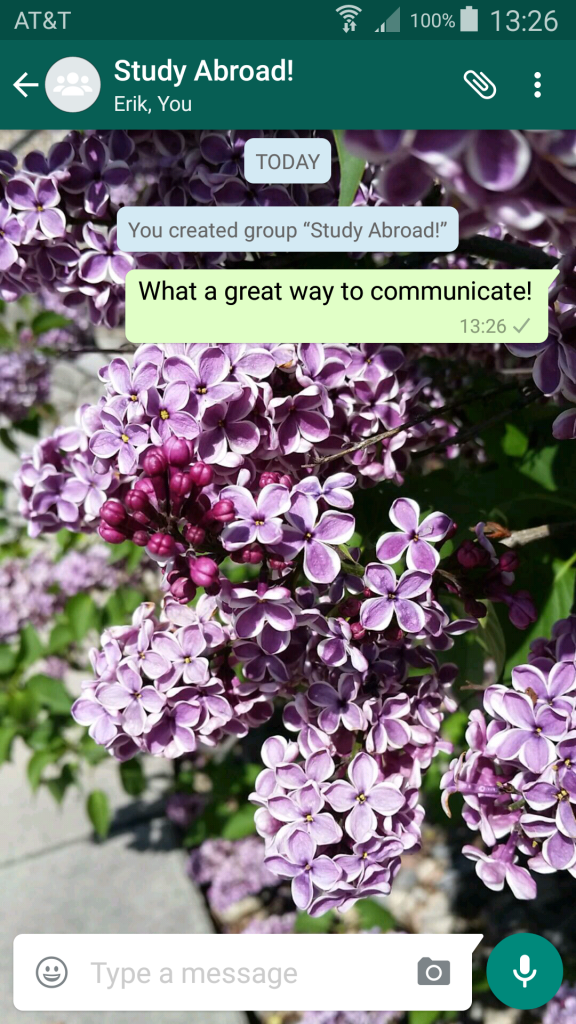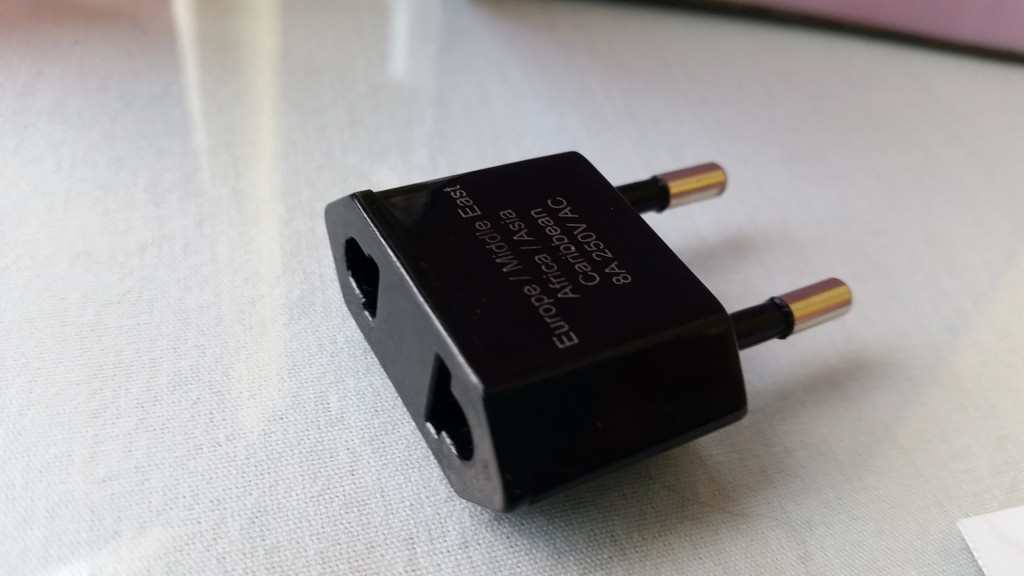Living in a foreign country can pose many problems when it comes to communicating with your friends and family back home. There are many different options for staying in touch. In this blog, I am going to talk about some of the methods I used.
Once I arrived in Spain, I realized that wifi would not be nearly as reliable as I was used to. Spaniards in general, do not rely on the internet as much as typical Americans, because of this it is not as widely available as in the U.S. Though there were multiple wifi networks available to us at my residencia, they almost always ran much slower than what I am used to, and this was definitely frustrating at first because I have grown to expect fast internet service. I think living in Spain provided me with a needed reality check and reminded me that I should not always rely on the internet. Wifi at restaurants and cafes are another option, but many places do not offer the service and you always have to ask an employee for the password. Some places even limit your wifi access to one hour long for each purchase. So, after realizing that I probably would not be able to depend on wifi all the time, I looked into some other options for communicating with my family at home.
After some research, I determined that paying for an international mobile plan from my normal mobile service provider would be the best solution for me. Though it is not worth the cost for everyone, my access to unlimited international texting definitely made me feel more comfortable while I was abroad. I also had a small amount of data (usually used for looking up directions when I got lost) and international calls that were priced by the minute. So, I used my texting often and my data when needed, but since calling was an extra cost, I limited my phone time to wifi-friendly media.
I used a variety of internet texting and calling services while abroad, my preferred medium of communication for both internet-texting and calling was Facebook Messenger. With this app, you can text anyone else who has Facebook in addition to making both audio and video calls. I video chatted with my friends back home through this app and usually used it to text my Spanish friends (SMS texting is not very popular in Spain).
 |
| As you can see, Facebook Messenger allows you to text, send pictures, call, and videochat (calling and video options at the top) |
I also used Whatsapp to communicate with Spanish friends and some of my teachers as this is the most popular messaging medium among Spaniards. Whatsapp also was the app I used to speak with my family when I wanted to call home. Whatsapp does not offer video chatting, but it has excellent audio call quality.
 |
| Whatsapp's Interface for texting. You can add your own background! |
Keep in mind that if you are planning to go abroad, you will not want to be glued to your phone everywhere you go as that will surely hinder your ability to fully experience your life abroad. Even so, in this day and age communication with friends and family, even if overseas, is a vital part of our lives. So do your research and determine what will be the best approach for you!
Another final tip: Purchase adapters and converters before you leave! If you are outside North America, you will likely need both of these devices to be able to charge any electric devices, and it is wise to purchase them before you leave so you won't have to go searching for one the moment you get there.
 |
| Here is an example of an adapter. You can plug in either a European or North American plug and use it in a European outlet. |
Eve Olson is the Fall 2015 CEA MOJO Blogger in Granada, Spain. She is currently a Junior at the University of Utah.







